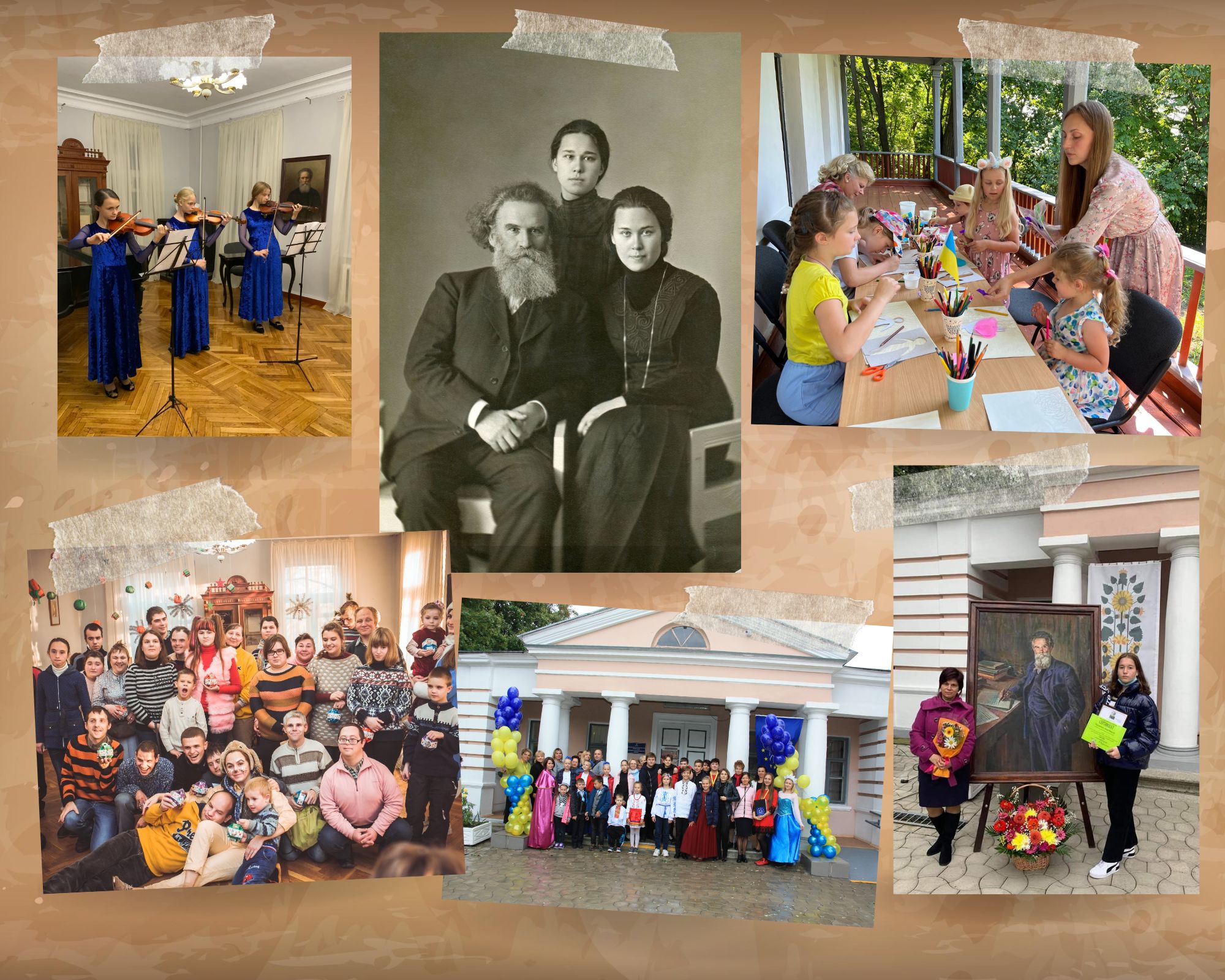

For the first time in the world, International Children's Day was celebrated in 1949. In Ukraine, Children's Protection Day was established according to the Presidential Decree in 1998, annually on June 1.
Communal museums of the city in their everyday cultural and educational work pay great attention to the interaction with the children and teenagers category of visitors. However, among the five museums that belong to the basic network of cultural institutions of the Poltava City Territorial Community, there is a museum that takes care of the children's audience the most - the Volodymyr Korolenko Literary and Memorial Museum.
Since 1903, the estate of the prominent humanist writer and human rights activist on Malo-Sadova Street (now Korolenko Street) has been a reliable and permanent shelter for children's laughter, joy and hopes for the best. A series of revolutions, impoverishment, hunger, diseases and the horrors of the First World War - children were the first to suffer from all these manifestations of the stormy beginning of the 20th century. Having two daughters-assistants (Sofia and Natalia), the writer's family did everything possible to protect the children of Poltava, their harmonious development, and sometimes even to save their lives.
It is no exaggeration to say that the writer's estate in Malo-Sadova served as the main "office" of the children's rights commissioner, and Volodymyr Korolenko himself was the children's ombudsman of Poltava at the beginning of the 20th century, a position that will be offered at the official level in Ukraine only in 2011.
Understanding the importance of the harmonious development of a child in a combination of physical-psychological and intellectual-emotional growth, Korolenko was the founder and, in most cases, the head of such societies (NGOs), such as the Poltava Society for Promoting the Physical Development of Children (1903), the Poltava Committee of the City Public Library (1901), Poltava Committee for Aid to the Starving, charity organization "League of Saving Children" (1918), charity project for saving babies "The Milk Drop". The activity of the last three was caused by the need to overcome the terrible consequences of the First World War: orphanhood, disability and loss of health, malnutrition, homelessness, etc.
The writer's daughters constantly acted as organizers of a number of cultural and educational events for children and their families. The Korolenko Manor itself hospitably welcomed both progressive youth and well-known figures - Ivan Kozlovskyi, Ivan Tobilevych (Karpenko-Karii), Mykhailo Kotsiubynskyi, and others. During the winter holidays, New Year's trees are arranged for children from poor families and orphans - holidays with a combination of reading aloud, making Christmas decorations, tea parties with the obligatory treat of goodies, no matter how hard it is for the host family.
The more than age-old tradition of caring for children is now being continued by the Writer's Manor Museum, which is the initiator of the implementation of the following powerful projects: "Museum Wednesday" (for school youth and, including, children of IDPs), the thematic game-quest "Treasures of the Korolenko Manor", museum amateur studio-theater "Anastasis" (director - Taras Dukhovny, within the framework of the project "Childhood will not be put on pause"), charity project for children with Down syndrome "Energy of the family - the future of the child" (practicing psychologist - M. Dikhtenko) etc. For the purpose of quality and meaningful education of the younger generation, the Volodymyr Korolenko Manor Museum has bilateral agreements on cooperation with such partners as the Poltava National Pedagogical University named after Volodymyr. Korolenko, NGO "Fund for the Protection and Support of Talented Children", NGO "Poltava DOWN SYNDROME", Public Institution "Inclusive Resource Center" of the PCC, Poltava City Center of Social Services, NGO "Poltava City Organization of the Disabled "PROLISOK", Poltava Children's music school No. 1 named after P. Maiborody and others.
Children are the future, the success of which is formed now, everyday and now. Realizing this, especially in the current difficult conditions, the decision of the Poltava Regional Council declared 2023 the Year of the Child in the Poltava Region.
Vitalii Pavlov